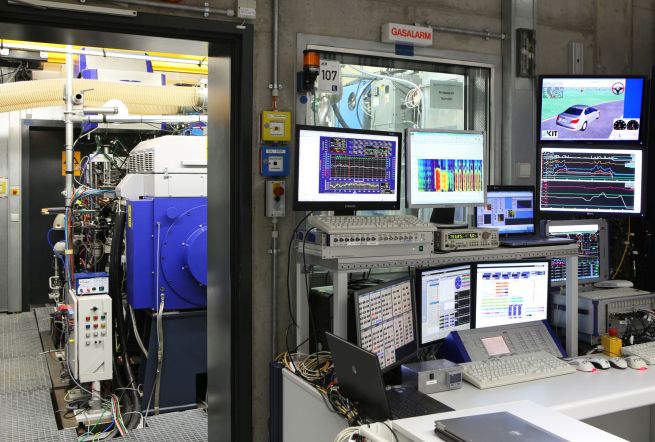OWI and KIT Develop Method for Prediction
05 November 2021 –
In a current research project, OWI Science for Fuels gGmbH and the Institute of Internal Combustion Engines at the Karlsruhe Institute of Technology with the support of the Research Association for Combustion Engines (FVV) intend to develop a new method to quickly and reliably analyze and predict the potential for reducing particulate emissions of alternative fuels and fuel blends. If successfully developed, the method could be incorporated into fuel standards.
The background to the development is that, in parallel with CO2 emissions from transport fuels, local emissions such as those from harmful soot particles are to be limited even more. A demanding EURO 7 standard is currently under discussion. The potential for the formation of soot particles during engine combustion depends not only on the quality of the combustion process, but above all on the chemical composition of the fuels. As new greenhouse gas-neutral fuels are developed, their properties could be designed to virtually eliminate particulate emissions. However, the detection of particulate emissions currently requires time-consuming and material-intensive RDE (Real Driving Emissions) test procedures. In addition, there is currently no direct analysis method of particulate emissions with suitable robustness for use in non-scientific laboratories.
Prediction of the emission behavior of fuels
The envisioned new test method will predict the emissions performance of new alternative fuels and fuel blends based on the Yield Sooting Index (YSI). The research project includes emission tests on a stationary burner based on the YSI using a simplified measurement method to be developed, which should reduce the experimental setup and speed up the development process. In addition to the data thus obtained, these are to be compared with the particulate emissions determined on the engine test bench during dynamic driving profiles typical of RDE. This will enable correlation with the YSI. These data will be fed into a database containing the physico-chemical properties of the fuels used and will form the basis for a predictive model to evaluate the expected RDE particulate emissions.
The advantage of this method would be that it is based on direct measurement and takes into account the entire substance properties of fuels and fuel blends in a real combustion process. The intended results of this project could allow easy analysis of any fuel blends including realistic market fuels with reliable information on soot formation. The YSI parameter would be the key tool in the fuel development process to describe fuel quality with respect to expected particulate emissions. The development of fuel formulations with reduced particulate emissions would be easier, as it would be quicker and easier to make statements about particulate emissions. Complex RDE tests could be limited to selected fuels. Incorporation of the model into the fuel development process and legislation could result in high quality fuels that reduce particulate emissions for future powertrains and the existing fleet.
The research project is financially supported by the FVV e. V. within the framework of the German industrial joint research (Industrielle Gemeinschaftsforschung) (project number 1448) and accompanied by a working group under the leadership of Dr. Christian Töpel (Freyberger engineering GmbH) and Dr. Lars Menger (BMW AG).

Project decription with further information






